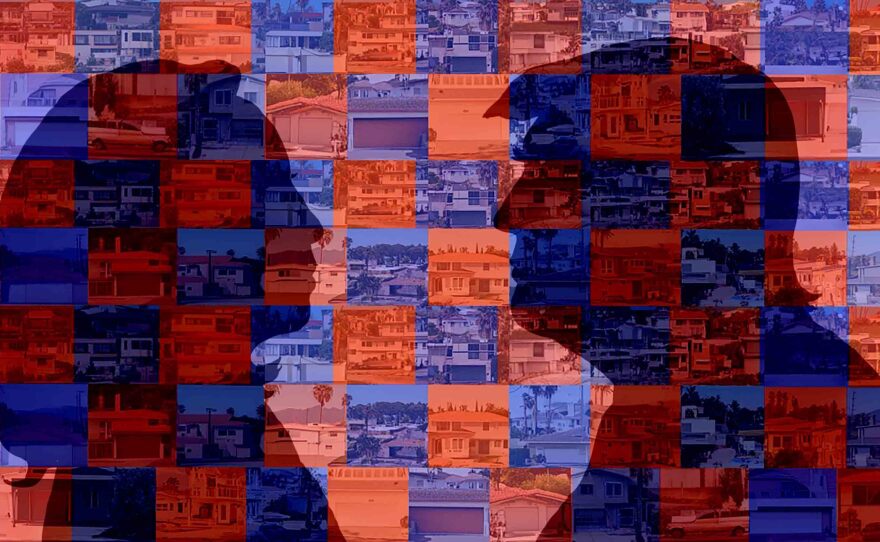By now, it’s well known that some traditional stalwarts of the Democratic Party jumped ship in the November election.
But it turns out that trend across the country was also mirrored in neighborhoods like Chollas Park, Paradise Hills and other parts of Southeastern San Diego.
Democrats lost just under 11,000 votes in Southeastern San Diego between November’s election and four years ago. At the same time, figures from the San Diego County Registrar of Voters show Republicans gained around 2,000 votes in the region. Put another way, in November 2020, 81% of voters in the area went Democratic, and 19% cast their ballots for the Republican candidate. In November last year, 71% in the area voted Democratic, while 29% went Republican.
Republicans made similar strides in swing states. Latinos switched to the GOP by more than 20 points in Pennsylvania, Nevada and Michigan. Fewer Black voters also cast their ballots for Democrats but their shift was not as great as that of Latinos.
The local voting trends from November don’t surprise Ellen Nash, chair of the San Diego chapter of the Black American Political Association of California. She lives in Southeastern San Diego and spent several hours at a neighborhood cafe one week before Election Day. She said voters, especially those under 30, told her they were fed up with both parties.
“The individuals I spoke with talked about their independence from both parties, about having choices, options,” Nash said. “They didn’t agree with the Republicans on all the issues and they didn’t agree with all the Democrats. They wanted the ability to pick and choose.”
She added that a resounding theme of her conversations with voters in the community was that the system had failed them.
“Black people in Southeastern San Diego, if you look at the data, we're at the bottom in all categories: education, housing, employment, racial justice, all of the areas,” Nash said. “And it's been that way historically.”
Clariza Marin, chief financial officer of the Harvey Family Foundation, which provides services to low-income families in Southeastern San Diego, contends the perception of local systemic failure was only reinforced during the January floods last year. More than 1,000 people were displaced from their homes along Chollas Creek, where nearby storm drains had been choked with vegetation for years.
Marin said people were disappointed by the response from local Democratic elected officials and the San Diego County Democratic Party’s leadership. She said they did little to rebuild trust with the community, which might have contributed to residents voting for President-elect Donald Trump.
“People want to disrupt the status quo, and here is someone that has come in and capitalized on that whole anti-establishment sentiment,” Marin said. “I believe that was another factor that resonated with the number of folks here on a local level that felt ignored and neglected.”
And Marin said Southeastern voters were less apt to buy Vice President Kamala Harris’s economic agenda over Trump’s because Harris is part of the incumbent administration. People saw with their own eyes that the number of unhoused people in the region has not only not decreased over the last four years, but increased, Marin said. Nor have their finances improved.
“The proof is in where people are today, not to say that was the right vote, but the messaging resonated, and I think that's where the big difference is, there were a lot of promises, but when you wake up every morning and you're still living paycheck to paycheck, those tangible deliverables are what I think matters the most to people right now,” Marin said.
Laila Aziz, the director of the criminal justice reform nonprofit Pillars of the Community, said some locals also didn’t like Harris’s background as a prosecutor. Harris served as District Attorney of San Francisco and as California’s Attorney General.
“Some of the wrongful convictions she fought to maintain as attorney general, some of the practices she did to poor women and mothers, to incarcerate them when they really needed help,” Aziz said. “And so she had a legacy of doing a lot of harm that a lot of people in Southeast never forgot.”








